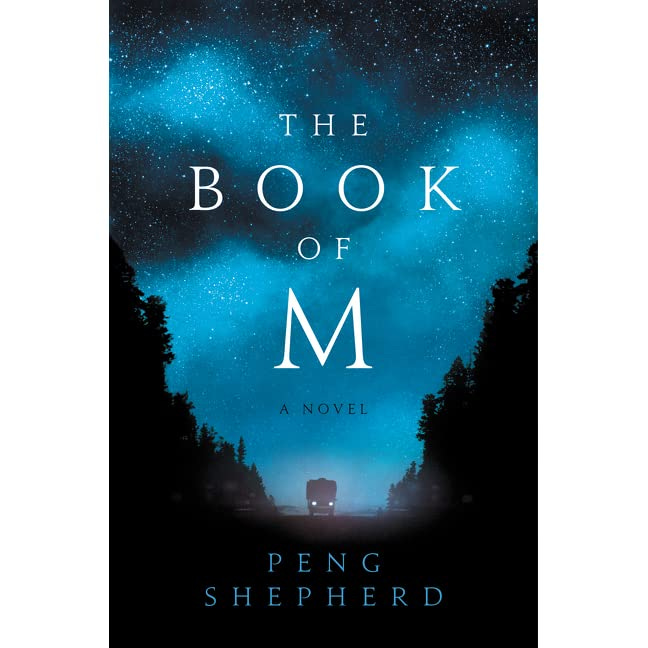Things Disappear
On Memory and Loss: A Nexus of Books
I read this collection of book around the same time. Interestingly, it was an interesting trend just before the pandemic. In some cases, the lost things are things we never thought we could lose. In other cases, it is the act of losing that is so devastating. These books have been fascinating and terrifying all at once. Here is a look at some of these books and why this type of idea is emerging in literature.
The oldest book in the group is a very innovative and probably the most upbeat book titled Ella Minnow Pea, by Mark Dunn (2002), the deals with the disappearance of language. In the book is described as “a girl living happily on the fictional island of Nollop off the coast of South Carolina. Nollop was the named after Nevin Nollop, the author of the immortal phrase containing all the letters in the alphabet, ‘The quick brown fox jumped over the lazy dog.’ Now Ella finds herself acting to save her friends, family, and fellow citizens from the encroaching totalitarianism of the island’s Council, which has banned the use of certain letters of the alphabet as they fall from a memorial statue of Nevin Nollop. As the letters progressively drop from the statue they also disappear from the novel. The result is both a hilarious and moving story of one girl’s fight for freedom of expression, as well as a linguistic tour de force sure to delight word lovers everywhere.” This book not only shows the absurdity of how we define rules and social construct, but it also physically oppresses the reader. Each letter that is dropped from the language, gets dropped from the prose, making it harder and harder to understand. Until it becomes absurd, it feels complicated and oppressive. This brilliant short read feels like a silly parable, but the implications of the novel are deep and meaningful in terms of who makes the rules, who follows them, and the absurdity of principle over common sense.
Avid readers tend to read a lot of books and many of them are the same. If you read genre murder/mystery novels then you come to expect some of the same common techniques and elements in these books. Novels and stories that stick out to me are the novels that innovate. They aren’t experimental, but they do something I’ve never seen before in a novel or in the genre. Sometimes, that is just a small element of the story. Sometimes, it is the whole book. The Book of M by Peng Shepherd (2018) is a novel that innovates in many different ways. Not only does this book innovate in terms of plot and conflict, it also uses language in innovative ways to close the gap between the unthinkable and the possible. In Alison Walkers review of the book, she describes it as this: “What if your shadow inexplicably held memories? And what if, one day, shadows began to disappear? One day in a busy Indian market a man’s shadow disappears, and with it his memories begin to unravel. Soon, the affliction spreads across the world, as more and more people slowly lose their memories—and with them their ability to reason. We see this catastrophe unfold through the eyes of Ory and his girlfriend, Max, who have gone into hiding in an abandoned hotel. When Max loses her shadow and disappears into the forest, Ory pursues her and heads south, hoping to find Max before she forgets him.” The ideas and language in the novel are so innnovative and compelling that the novel seems like the only place that this idea can happen. While this book has been optioned to the screen (or television), it will be very difficult to handle the range of loss and vision without the narrative and language in the novel. The book is always better, but in this case, the best parts of the novel can never be captured by visuals on the screen. That being said, the loss here is fascinating, overwhelming, and catastrophic. As a result, everything is at stake and the book is filled with the tension of complete calamity, personally, universally, across all realms of thought and feeling. This book is innovative and so exciting to read. And the sense of loss is complete in its effect on the reader.
The last book on our tour of things lost, is The Memory Police by Yoko Ogawa (2019). This book not only considers the loss of things to our memory, but it also implies that there is a task-force that enforces that loss. While all these books could fall in and out of dystopian literature, this one feels the most oppressive. The book is explained here: “On an unnamed island off an unnamed coast, objects are disappearing: first hats, then ribbons, birds, roses – until things become much more serious. Most of the island’s inhabitants are oblivious to these changes, while those few imbued with the power to recall the lost objects live in fear of the draconian Memory Police, who are committed to ensuring that what has disappeared remains forgotten. When a young woman who is struggling to maintain her career as a novelist discovered that her editor is in danger from the Memory Police, she concocts a plan to hide him beneath her floorboards. As fear and loss close in around them, they cling to her writing as the last way of preserving the past.” This book feels like the dystopian classics, but also has a pointed and ironic sense of our contemporary times of authoritarian vision of oppression in a interconnected vision of being seen through the eyes of the technology and systems.
Over the course discovering these novels, I found a vision for dystopian novels and ideas. The layers of self-reflected irony is often an element that adds meaning and empathy in a novel. It is clear that classic dystopian novels have meaning because they are close to the surface of our vision of society, relationships, government, and power. Orwell’s 1984 is still a stunning vision. And we often feel like we are moving closer to it rather than moving away. There is also The Handmaid’s Tale by Atwood (now a television series), which envisions the darkest places in a society ruled by pain, suffering, and authority. Yet in these three novel, there is a sense that loss isn’t about moving through things that you can’t have, but the existential precipice around the idea that you may never know you had them to begin with. And that power, that fear of forgetting, or letting something go because it doesn’t mean anything any more is where the fear and anxiety derive.
Is the world shaping these ideas through our vision of the world? Authoritarianism, war, refugees, and environmental disasters have shaped the last fifteen years. And with it has come a different way of seeing the world. But I also think technology has eroded the way we interact in the world. I think technology and the vision of the world is better. But, it also feels like technology is also scrubbing our brains from the act of deep thinking and retaining long term memories. That is not to say people don’t do these things, but we are pushed and shoved along the information highway and we are moved along from one devastating idea or construct to the next. We all know the exhaustion of just being overwhelmed by what is happening. That is also taking a toll on how we see the world. And perhaps these novels are a result of that idea.
In terms of the pandemic, these books feel like they fall into the darkness of our emotional disconnect. While these three books looked a little different before the pandemic, but now that we’ve had a shift in perspective. Social signs are often rippling in novels and the idea of isolation, loss, and catastrophe fills these books. The Book of M really resonates with the concept of loss and disconnect. And it is with this fascinating premise of the novel that makes it all the more haunting and hard to follow. There are a nexus be
These novels represent some amazing innovation in writing. As a writer and someone who is constantly looking for innovation in novels, these book matter. In the end, these visions of what is possible should strike a chord. In terms of writing, we should be looking for the social messages that are woven in these novels. Writing novels are fascinating because they are complex and each element within the book has to connect with another. That being said, without context or memory, we couldn’t read novels. We couldn’t remember how parts connect (or who committed the crime), and these novels remind us through the innovation of memory, there is the unfathomable idea that we could, unknowingly, let it all slip away.





